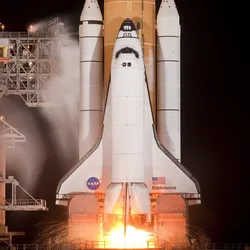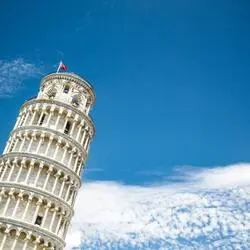
Level 1:
On April 12th, a long time ago, a clever man named Albert Einstein died. After he died, someone stole his brain without asking his family or the police. They kept it in jars for many years in their basement. People studied his brain to try and find out why he was so smart. But some scientists said they didn’t think this was a good way to study brains. On that same day, another man called Yuri Gagarin went into space. He was the first person to orbit the Earth. This made many people happy and proud. In a different year, a law was signed on April 12th. The law said that everyone born in the United States has equal rights, no matter what their skin color is.
Level 2:
Today, we remember Albert Einstein who was a very smart man. He passed away long ago and someone took his brain without permission. They kept it in jars for many years to study why he was so clever. However, some people did not think this was a good way to research brains. On the same day, Yuri Gagarin went into space, becoming the first person to orbit the Earth. This made many people happy and proud. Another important event happened on April 12th when a law was signed that gave equal rights to all individuals born in the United States, regardless of their skin color.
Full Story:
The first space shuttle was launched into space on April 12, 1981. The STS-1 mission was important because it heralded the start of a new era in manned spaceflight. However, we will not be discussing this today.
Instead, let us discuss another major and very amusing occurrence that occurred on this day. Albert Einstein, the world’s most famous physicist, died on April 12, 1955, at the age of 76. But what’s the joke here, you might ask? It turns out that one of the pathologists who performed the autopsy stole his brain shortly after his death.
Dr. Thomas Harvey removed Einstein’s brain without authorization from his family or the authorities after his death. For several years, he stored it in formaldehyde-filled jars in his basement. He eventually decided to perform a brain research in the hopes of discovering something that could explain Einstein’s genius.
The theft of Einstein’s brain was not detected until Harvey contacted experts who were interested in researching it some years later. Various brain investigations have been undertaken throughout the years, but none have reached any substantial findings about Einstein’s IQ or talents.
In reality, some scientists have challenged Harvey’s handling of the brain and the ensuing investigations. They claim that the sample size is insufficient to draw significant conclusions, and that the conditions in which the brain was maintained may have affected its integrity.
Despite the controversy surrounding Einstein’s brain theft, it remains an intriguing and rather amusing anecdote in scientific history.
Moving on to more serious concerns, Soviet astronaut Yuri Gagarin became the first human to orbit the Earth on April 12, 1961. This was a key milestone in the Cold War Space Race between the United States and the Soviet Union.
Gagarin’s mission lasted slightly over two hours, and he made one orbit around the Earth. His mission’s accomplishment was a major propaganda win for the Soviet Union, sparking a fresh attempt by the US to catch up in the Space Race.
His flight had far-reaching consequences for the future of space exploration. It proved that humans could live and work in space, paving the door for future manned trips to the moon and beyond.
Another significant event on this day was the signing of the Civil Rights Act of 1866. This act, which overrode President Andrew Johnson’s veto, awarded all people born in the United States citizenship and equal rights, regardless of color.
The act was a crucial step forward in the civil rights struggle, laying the framework for subsequent laws such as the Civil Rights Act of 1964 and the Voting Rights Act of 1965.
To summarize, April 12th has been a day of both tremendous accomplishments and oddities throughout history. This day has witnessed many noteworthy events, ranging from the launch of the first space shuttle to the theft of Einstein’s brain. However, it is critical to realize that the significance of these events extends far beyond their entertainment value. They have shaped our globe and will continue to shape the direction of human history for future generations.
Questions:
Who was Albert Einstein and what made him a famous figure in history?
What is the significance of Yuri Gagarin’s journey into space on April 12th?
How did the unauthorized removal of Einstein’s brain impact the scientific community?
Do you believe that studying brains of deceased individuals without their consent is ethical? Why or why not?
In your opinion, which event on April 12th had the most significant impact on society and why?
Fill In the Blanks:
autopsy, significant, integrity, physicist, orbit, anecdote, formaldehyde, propaganda, era, veto, controversy, manned
The STS-1 mission was important because it heralded the start of a new ________ in ________ spaceflight.
Albert Einstein, the world’s most famous ________, died on April 12, 1955, at the age of 76.
It turns out that one of the pathologists who performed the ________ stole his brain shortly after his death.
For several years, he stored it in ________-filled jars in his basement.
They claim that the sample size is insufficient to draw ________ conclusions, and that the conditions in which the brain was maintained may have affected its ________.
Despite the ________ surrounding Einstein’s brain theft, it remains an intriguing and rather amusing ________ in scientific history.
Moving on to more serious concerns, Soviet astronaut Yuri Gagarin became the first human to ________ the Earth on April 12, 1961.
His mission’s accomplishment was a major ________ win for the Soviet Union, sparking a fresh attempt by the US to catch up in the Space Race.
This act, which overrode President Andrew Johnson’s ________, awarded all people born in the United States citizenship and equal rights, regardless of color.
Difficult Words:
significant - important, noteworthy
manned - operated by a person or people
era - a period of time marked by certain events, characteristics, or developments
renowned - famous, well-known
physicist - a scientist who studies the laws and properties of matter and energy
autopsy - a postmortem examination to determine the cause of death
formaldehyde - a colorless pungent gas in solution made by oxidizing methanol which is used chiefly as a disinfectant and preservative
conduct - organize and carry out
sample size - the number of individuals or things being studied in an experiment or research project
integrity - the quality of being honest and having strong moral principles
controversy - disagreement, discussion or argument about something important
anecdote - a short and amusing or interesting story about a real incident or person
cosmonaut - an astronaut from the Soviet Union or Russia
orbit - the curved path followed by a satellite or spacecraft around a celestial body such as Earth
propaganda - information that is spread for the purpose of promoting a particular cause or viewpoint
renewed - resumed or continued after an interruption
survive - remain alive or continue to exist
implication - the conclusion that can be drawn from something, although it is not explicitly stated
civil rights - the rights of citizens to political and social freedom and equality
veto - a constitutional right to reject a decision or proposal made by a law-making body




